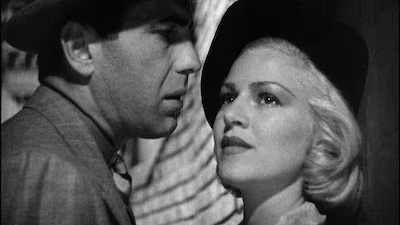Lillian Hellman
About
Biography
Filmography
Family & Companions
Bibliography
Notes
In a televised interview, rival author Mary McCarthy made the now (in)famous statement, "Every word she [Hellman] writes is a lie, including 'and' and 'the'." Hellman filed a million-dollar slander lawsuit against McCarthy.
One Muriel Gardner claimed that her life story was actually the basis for the story of Julia that Hellman included in "Pentimento" and that formed the basis of the 1977 book. Gardner also claimed that she had never met Lillian Hellman.
Biography
Leading American dramatist whose tough, socially conscious dramas achieved critical and commercial success in the 1930s and 40s. Hellman was blacklisted in 1952 for refusing to identify former leftist associates to the House Committee on Un-American Activities with the now-famous declaration that "I cannot and will not cut my conscience to fit this year's fashions." She was portrayed by Jane Fonda in the successful 1977 film "Julia," based on one of her short stories and by Judy Davis in the TV biography "Dash and Lilly" (A&E, 1999).
Filmography
Writer (Feature Film)
Cast (Special)
Writer (Special)
Special Thanks (Special)
Misc. Crew (Special)
Life Events
1925
Was a book reviewer for the New York Herald Tribune
1929
Moved to Hollywood when then-husband was hired by Paramount
1930
Worked as a script reader
1932
With Louis Kronenberg, wrote unproduced comedy "The Dear Queen"
1934
Had Broadway success with "The Children's Hour"; Hammett had recounted a true story of two Scottish schoolteachers who lost their jobs amid rumors of a lesbian affair; Hellman reportedly later told people that Hammett wrote much of the play for which she took credit
1935
Feature debut, co-wrote screenplay with Mordaunt Shairp, "The Dark Angel"
1936
Solo screenwriting debut, "These Three", adapted from her play "The Children's Hour"; also first collaboration with William Wyler
1937
Traveled to Europe (including a visit to Moscow), also went to Spain with Ernest Hemingway
1939
Enjoyed Broadway hit with "The Little Foxes"
1941
Penned "Watch on the Rhine"
1941
Received first Academy Award nomination for adaptation of her play "The Little Foxes"
1943
Garnered second Oscar nomination for original script "The North Star"
1944
Wrote the antifascist themed play "The Searching Wind"
1948
Visited Yugoslavia and interviewed Marshall Tito
1949
Directed and adapted the French play "Montserrat"
1951
Had another Broadway success with "The Autumn Garden"
1952
Subpoenaed to testify before the House Committee on UnAmerican Activities; refused to name names and made now famous comment, "I cannot and will not cut my conscience to fit this year's fashions"
1954
Translated Jean Anouilh's play ("L'Allouete") about Joan of Arc as "The Lark"
1955
Debut as librettist, adapted with Richard Wilbur Voltaire's "Candide" as a stage musical with a score by Leonard Bernstein and lyrics by John Latouche
1960
Last original Broadway play, "Toys in the Attic", starring Jason Robards
1961
Final collaboration with Wyler, adapted another screen version of "The Children's Hour"
1966
Final screenplay credit, "The Chase"
1969
Issued first volume of memoirs, "An Unfinished Woman"
1972
Adapted "Another Part of the Forest" for PBS
1977
Portrayed by Jane Fonda in "Julia", a film based on parts of her book "Pentimento"; Jason Robards co-starred as Hammett
Videos
Movie Clip












Trailer


Family
Companions

Bibliography
Notes
In a televised interview, rival author Mary McCarthy made the now (in)famous statement, "Every word she [Hellman] writes is a lie, including 'and' and 'the'." Hellman filed a million-dollar slander lawsuit against McCarthy.
One Muriel Gardner claimed that her life story was actually the basis for the story of Julia that Hellman included in "Pentimento" and that formed the basis of the 1977 book. Gardner also claimed that she had never met Lillian Hellman.
"Lillian was a celebrity hound." --Martha's Vineyard resident Carly Simon on her famous neighbor.
"When I first went out to Hollywood one heard talk from writers about whoring. But you are not tempted to whore unless you want to be a whore." --Lillian Hellman quoted in "Playwrights at Work: The Paris Review Interviews", edited by George Plimpton, (Modern Library, 2000).











